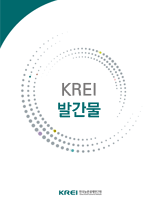


The concept of multifunctional agriculture has been suspected of 'disguised' or 'veiled' protectionism by proponents of market-oriented reforms since the Uruguay Round Agreement on Agriculture(URAA). In this article, I review the history and nature of agricultural protectionism and probe the concept...
The concept of multifunctional agriculture has been suspected of 'disguised' or 'veiled' protectionism by proponents of market-oriented reforms since the Uruguay Round Agreement on Agriculture(URAA). In this article, I review the history and nature of agricultural protectionism and probe the concept of multifunctional agriculture from economics and broader social science perspectives. Then, I contend that agricultural protectionism in the second half of the 20th century was, in fact, a revelation of the demand for the multifunctional roles of agriculture, heightened by industrial policies designed by developed countries to secure the survival and growth of agriculture to a socially acceptable point. An implication of this contention is that we are not likely to have a trading system in agriculture as liberalized as manufacturing/industrial sectors. The frame of debate for agricultural trade is neither protectionism vs. trade liberalization nor market vs. government any longer. I propose that the relevant frame should be centered around the question of how to fine-tune government interventions and the WTO’s trade rules to better serve agriculture-related goals unique to each country across the world. The traffic light box system from the Uruguay Round signified a starting point of promising mechanism that could harmonize market rules with the social demand for
multifunctional and sustainable agriculture. The negotiators in the WTO multilateral talks should discard the perception that it is always a virtue to liberalize agricultural trade.
KREI의 출판물은 판매 대행사 (정부간행물판매센터)와 아래 서점에서 구입 하실 수 있습니다.
| 교보문고 | http://www.kyobobook.co.kr/ |
|---|---|
| 영풍문고 | http://www.ypbooks.co.kr/ |
| 알라딘 | http://www.aladin.co.kr/ |
| 상세정보 조회 | 좋아요 | 다운로드 | 스크랩 | SNS공유 |
|---|---|---|---|---|
| 15294 | 0 | 3 | 0 | 0 |